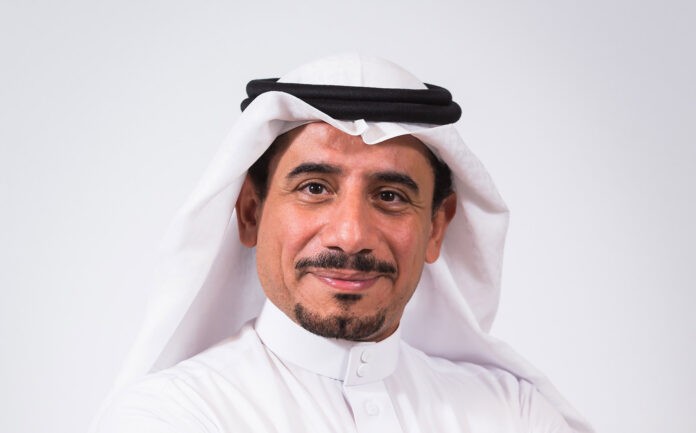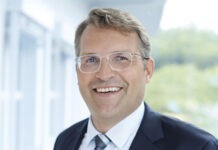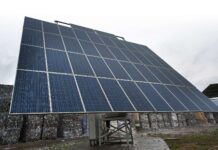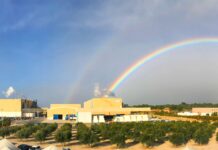Aided by population growth and high income per capita, Saudi Arabia’s tissue consumption is forecast to accelerate in the medium term with per capita consumption jumping to a potential 300,000tpy. Here, MEPCO Chief Executive Sami Safran spoke with TWM Senior Editor Helen Morris via Zoom from Jeddah.
On 7 December 2021, Saudi Arabia’s Middle East Paper Company (MEPCO) officially entered the global tissue market after breaking ground on its brand new 132,000m2, SAR338m ($90.13m) tissue plant in King Abdullah Economic City (KAEC).
The City – a megaproject announced in 2005 by King Abdullah bin Abdulaziz Al Saud, the former king of Saudi Arabia – is located along the coast of the Red Sea, and around 100km north of Jeddah, the country’s commercial hub and the location of MEPCO’s headquarters.
KAEC’s Industrial Valley is already a symbol of economic development, supporting the ambitious Saudi Vision 2030, a framework announced seven years ago to diversify the country’s economy, develop public and business sectors, and encourage tourism. It is an emerging destination for local and international factories, and logistics services based on the Red Sea.
In 2023, it will also be the home of a 60,000tpy Toscotec-supplied AHEAD 2.2L tissue machine, and MEPCO’s future tissue expansion plans.
Over a Zoom call from his office in Jeddah, Chief Executive Sami Safran describes his strategy for the project. MEPCO currently has a design capacity close to half a million metric tonnes for the containerboard and specialty paper markets, offering a range of products serving the packaging, construction, furniture, and paper core industries around the world. Its location and proximity to Jeddah’s seaport enables it to serve its 50+ customers in four continents within a very short lead time – currently 50 markets worldwide including the local Saudi market as well as the Gulf Cooperation Council (GCC), Middle East and Africa. It’s this strategy, Safran says, that will soon be applied to the company’s tissue business; while tissue will be more focused on supplying the local market, it does not exclude export.
The Toscotec-supplied TM4 was announced on 7 December 2020 and it is the result of a noteworthy gap between supply and demand of tissue products in Saudi. Safran says the Saudi tissue market has traditionally been one of the “less active” markets, and then in the early 90’s, local tissue manufacturers grew. The demand for products from Saudi Arabian people continued to be supported by a natural growth in population and also in per capita consumption, as well as the social transformation taking place recently, as well as the influx of pilgrims, which will be resumed in full force in 2022 after being cancelled/trimmed due to Covid.
“During the past three decades, Saudi Arabia did not grow in terms of general capacities because there were limited local and GCC players,” he adds. “Our internal numbers suggest that in the 1990s, per capita consumption was around 4kg per person, and now in 2021 we’re talking about more than 7kg per person across all tissue consumption patterns.”
While being focused on its core business, containerboard manufacturing, the company had tissue manufacturing in its view and noticed a sizable imbalance between local supply and
local production: “Saudi is the largest importer of tissue in the whole of the Middle East – it is now importing more than 150,000tpy of tissue from abroad. We are determined to change that situation, so we decided to go for tissue and launch the first state-of-the-art tissue machine in the country from Toscotec. This move into tissue was a lucrative opportunity to fill a significant import gap in the local market, which enjoys population growth and high GDP per capita, but limited local supply; it also included benefits of localising the industry and tissue-making know-how. We think big, and have an ambitious vision to realise. And we have also chosen a location so it’s possible to expand further into tissue.”
The tissue plant will initially occupy 30% of the 132,000m2 plot and will be powered by natural gas. Its production of jumbo rolls will cover a wide range of basis weights, with Toscotec supplying the new line on a turnkey basis and the scope of supply including two OPTIMA 2600L slitter rewinders designed to ensure superior bulk and softness preservation – key characteristics for the local consumers.
As the Saudi population grows organically, tissue consumption is forecasted to witness healthy growth in the medium-term: “Covid-19 had a significant positive impact on tissue demand worldwide, especially during lockdowns, despite the AfH sector witnessing less demand,” he adds. “In Saudi Arabia, the absence of guests for Hajj and Umrah, the Islamic pilgrimages to Mecca, definitely took a toll on consumption volumes. But the government recently announced resuming Hajj and Umrah at full capacity in 2022 in addition to the announced tourism programmes, so we do believe we’ll see a rebound. Demand for tissue products at large is definitely trending upwards and will constitute solid grounds for investment, especially that virgin pulp prices have lower cyclicality.”
Export practices are part of the company’s current strategy – it has previously sold its containerboard product all the way up to the UK – and the same will be applied to the tissue division once up and running. However, there is a huge gap between supply and demand in the country that Safran initially wants to address before it looks to export. “In the past two decades I’ve seen a major change in Saudi in per capita consumption, and I have also seen a change in consumer behaviour where tissue is becoming a dominating habit for the consumers here.
“The pandemic has also created a significant shift in behaviour, which has put more focus on the importance of hygienic paper products in general.”
He adds that tissue prices in Saudi Arabia compared to Europe are lower. And with improved consumer income locally, that drives the appetite to consume more and more tissue: “We are looking at some per capita consumption that is way higher than the 7kg we announced…. maybe even up to 9kg.”
The pandemic has improved hygiene awareness in Saudi, but that it is still evolving: “Due to differences in cultural habits, we are different from Western cultures. Yet we are seeing that the awareness and concern of the people towards usage of sanitisers and tissues has increased.”
Environment is also a key growth strategy. Bassem ElShawy, the company’s Head of Strategy and Business Development, explains that sustainability remains one of the key pillars of building any project for the entire group, not just for tissue: “We chose KAEC primarily because it has the natural gas connection there, and that’s mainly for our carbon footprint significantly. We are using the latest technology in tissue manufacturing also from Toscotec to manage the lowest level of carbon emissions and air and water pollution.
“There is a lot that MEPCO is doing with its current operations to manage water, air and soil pollution in every possible way. This will be copied into the tissue expansion project and will even be expanded into a much higher level. We will continue taking serious steps forward to look at how to bring down the carbon footprint of MEPCO as a group in the next 10 years.”
As for the company’s desert location, ElShawy adds that the business has “done the impossible” when it comes to water management for its existing containerboard facilities: “For containerboard production, we need a tremendous amount of water, every day. Being in the desert with absolutely no rivers or the like that we see in Europe for containerboard or paper mills, we are using recycled water.
“Our containerboard mill is located next to the water treatment facility of the city of Jeddah, where we source recycled water from. The tissue plant will use desalinated water sourced from KAEC’s on-site desalination facility. Here, the tissue plant will source water from KEAC’s Reverse Osmosis (RO) plant, and the discharge will be routed back for further chemical treatment.”
Safran says the business has targeted the lowest possible levels of water consumption for the tissue plant, adding that it should be less than 8km per tonne:
“We are going to build water treatment facilities to utilise the discharged water for partial recycling and agricultural use. Water was one of the major concern areas for building a paper industries in Saudi Arabia, so you’ll find these milestone achievements for different areas and we have received awards for our efforts there. And I am confident we can demonstrate an example of proper water management project to retain valuable resources.”
Saudi Arabia’s 2030 Vision is also working on highlight environmental awareness across communities, business, and the country. One month ago, Safran adds, the government is now targeting carbon neutrality by 2060: “It is looking to minimise carbon footprints in business, and it is supporting companies that are moving towards this. 90% of MEPCO’s fibre consumption is recycled paper at approximately 500,000 tonnes. There is no way these initiatives could be possible without cascading it down to community awareness. We try to be ahead of these initiatives. There is a lot of increasing awareness and concern across the population of Saudi Arabia for these topics.”
With the main raw material for containerboard being recovered paper, MEPCO collects it from a wholly owned subsidiary, owned by the business. “So we control roughly 50% of all waste paper generated in Saudi, and also collect waste paper from Sudan and Jordan,” he adds.
Safran says the business has high ambitions to be one of the tissue market leaders: “We have a great track record for being the market leader in the containerboard market, and we aim to do the same in the tissue industry.
“The business environment in Saudi Arabia nowadays is becoming very appealing for growth, agility and success. We are very blessed that the future, when you take the right steps, the right measures, is indeed bright.”

































